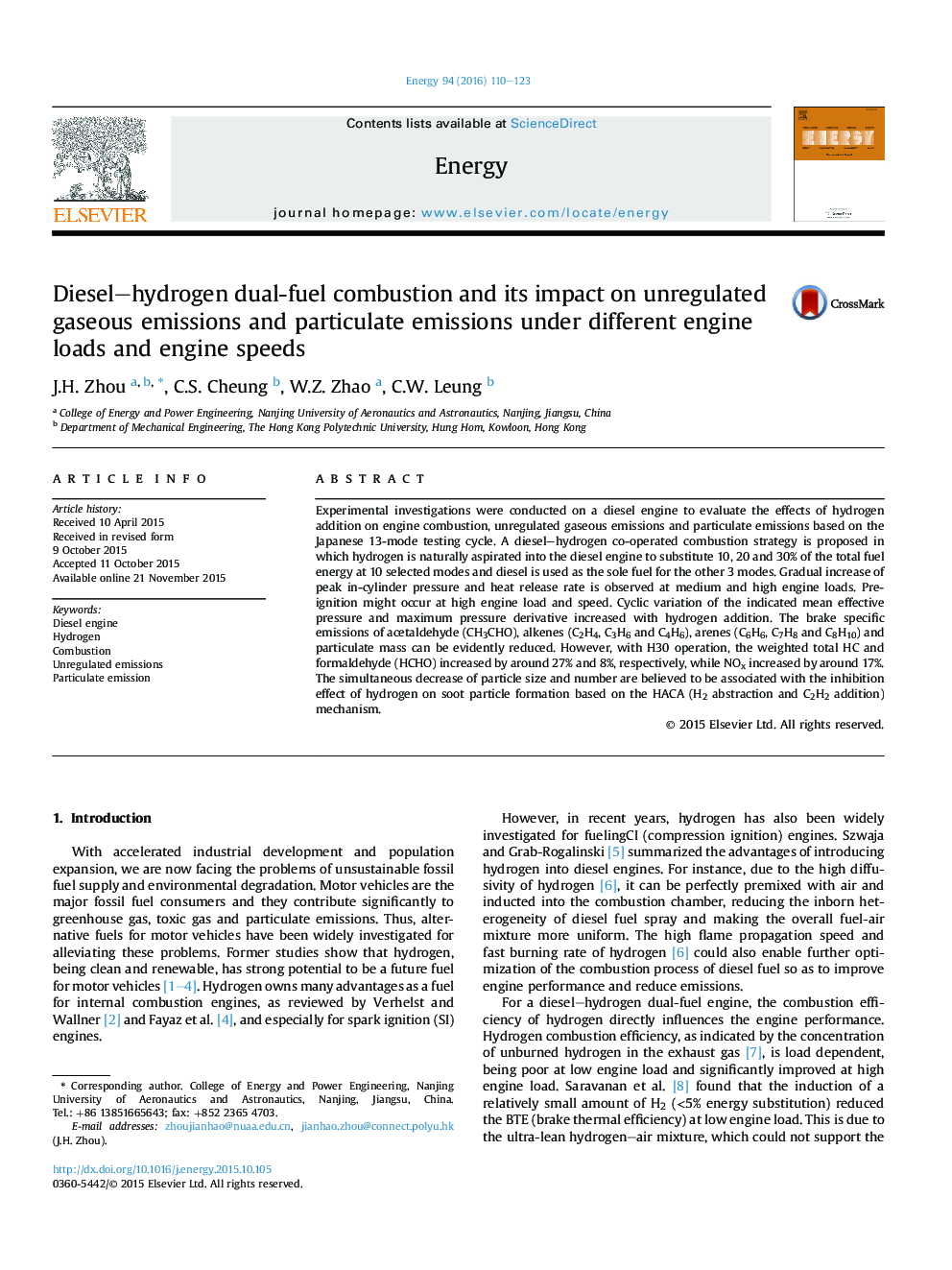| Article ID | Journal | Published Year | Pages | File Type |
|---|---|---|---|---|
| 1731175 | Energy | 2016 | 14 Pages |
Abstract
Experimental investigations were conducted on a diesel engine to evaluate the effects of hydrogen addition on engine combustion, unregulated gaseous emissions and particulate emissions based on the Japanese 13-mode testing cycle. A diesel-hydrogen co-operated combustion strategy is proposed in which hydrogen is naturally aspirated into the diesel engine to substitute 10, 20 and 30% of the total fuel energy at 10 selected modes and diesel is used as the sole fuel for the other 3 modes. Gradual increase of peak in-cylinder pressure and heat release rate is observed at medium and high engine loads. Pre-ignition might occur at high engine load and speed. Cyclic variation of the indicated mean effective pressure and maximum pressure derivative increased with hydrogen addition. The brake specific emissions of acetaldehyde (CH3CHO), alkenes (C2H4, C3H6 and C4H6), arenes (C6H6, C7H8 and C8H10) and particulate mass can be evidently reduced. However, with H30 operation, the weighted total HC and formaldehyde (HCHO) increased by around 27% and 8%, respectively, while NOx increased by around 17%. The simultaneous decrease of particle size and number are believed to be associated with the inhibition effect of hydrogen on soot particle formation based on the HACA (H2 abstraction and C2H2 addition) mechanism.
Related Topics
Physical Sciences and Engineering
Energy
Energy (General)
Authors
J.H. Zhou, C.S. Cheung, W.Z. Zhao, C.W. Leung,
